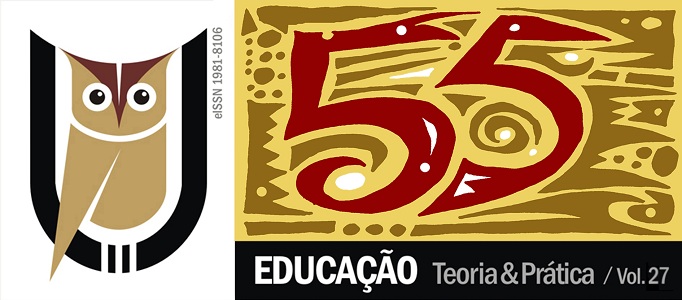IN DEFENSE OF CURRICULUM PRACTICED THOUGHT IN DAILY SCHOOL
DOI:
https://doi.org/10.18675/1981-8106.vol27.n55.p213-226Keywords:
Curriculum. Common National Base Curriculum. Curriculum Policy. School.Abstract
This paper takes as its starting point the creation of a Common National Base Curriculum underway in Brazil, to discuss traditional and technologic bases of curriculum thought that support this policy, when analyzing three actions against the BNCC produced by representative entities of curriculum researchers. In this sense, focus our analysis on some of the actions produced by the Brazilian Association of Curriculum (ABDC) and the National Association of Graduate Studies and Research in Education (ANPEd): 1) the production of a dossier published in 2014 on the idea of National Base; 2) the campaign "You already have curriculum"; 3) the letter sent to the National Education Council (CNE) with an "explanatory memorandum against the Common National Base Curriculum". Understanding that the guarantee of cognitive justice is a precondition for ensuring social justice, it is the mister desinvizibilização those practiced curricula and thought in school everyday. We consider networks in knowledge production and the need to bring about practices and thoughts in a post-abyssal perspective.Additional Files
Published
How to Cite
Issue
Section
License
Authors who publish in this journal agree to the following terms:
a) Authors assign copyright to the journal, with the work simultaneously licensed under the Creative Commons Attribution License that allows sharing of the work with acknowledgment of authorship and publication in this journal.
b) The policy adopted by the Editorial Committee is to assign copyright only after a period of 30 months from the date of publication of the article. After this time, authors interested in publishing the same text in another work must send a letter to the Editorial Committee requesting the release of the assignment of copyright and wait for a response.
c) This journal provides public access to all its content, since this allows greater visibility and reach of published articles and reviews. For more information on this approach, visit the Public Knowledge Project, a project that developed this system to improve the academic and public quality of research, by distributing OJS as well as other software to support the public access publication system to academic sources. The names and email addresses on this website will be used exclusively for the purposes of the journal and will not be available for other purposes. This journal provides open any other party  This work is licensed under a Creative Commons License
This work is licensed under a Creative Commons License











